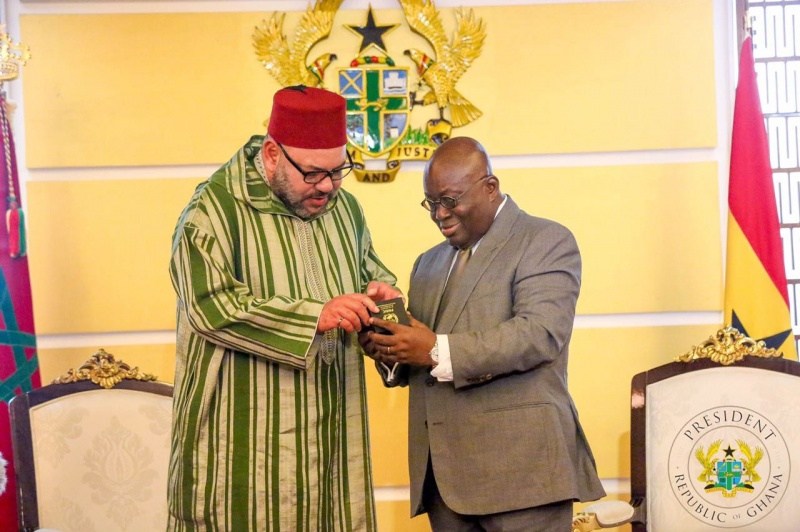Graphic Online Gh
George Kwatia
In our last publication, we discussed the signing of the Ghana-Morocco Double Tax Agreement (“DTA”) and the provisions of the DTA in relation to the taxation of permanent establishments and business income.
In the concluding part of the article, we will discuss the taxation of investment, employment and service incomes as well as other considerations under the DTA.
Taxation of investment income
Where a Moroccan company pays dividends to a tax resident company of Ghana, which is the beneficial owner of at least 10 per cent of the capital of the Moroccan company, the maximum dividend tax rate in Morocco is five per cent of the dividend received.
In any other cases, a tax of 10 per cent applies on the dividend paid by a Moroccan company to a tax resident persons of Ghana.
The dividend withholding taxes of five per cent or 10 per cent do not apply where the beneficial owner of the dividends is a Ghanaian resident entity which carries on business through a PE in Morocco.
Additionally, if the beneficial owner of the dividend performs independent personal services from a fixed base situated in Morocco, and the Moroccan company is effectively connected with such a PE, then this dividend tax will not apply.
Other than interest specified as exempt from tax in the DTA, interest income received by a Ghanaian tax resident person from a Moroccan tax resident entity may be taxed in Morocco at a maximum rate of 10 per cent.
In Ghana, however, interest payments are taxed at eight per cent meaning that the foreign tax credit received may only be relieved in Ghana up to eight per cent, leaving the Ghanaian lender with unrelieved Moroccan tax on interest income of two per cent.
Unless the qualifying conditions in the DTA are met, the tax rates on interest do not apply to interest accrued by a PE of a Ghanaian resident entity situated in Morocco, or from independent personal services from a fixed base situated in Morocco.
For royalty payments by a Moroccan tax resident to a Ghanaian tax resident, tax of 10 per cent may be deducted in Morocco.
The reduced rate of 10 per cent does not, however, apply where the beneficial owner of the royalties is a resident of Ghana and carries on business in Morocco via a PE situated in Morocco, or performs independent personal services from a fixed base situated in Morocco.
Capital gains realised from the alienation of immovable or movable property of a Ghanaian resident person situated in Morocco, whether owned directly or through a PE may be taxable in Morocco as per the conditions specified in the DTA.
However, capital gains from the alienation of ships or aircrafts operated in international traffic or movable property pertaining to the operation of ships or aircrafts are taxable in the place of effective management of the enterprise.
Capital stock
Gains from the alienation of shares, capital stock of a company, or of an interest in a partnership, trust or estate, the property of which consists directly or indirectly principally of immovable property situated in a country may be taxable in that country.
Gains from the alienation of any property not stated are taxable only in the country that the alienator is tax resident.
Taxation of employment income and other types of service incomes
Income derived by a Ghanaian resident from professional services or other services of an independent character shall be taxable only in Ghana. If the Ghanaian resident person has a fixed place available in Morocco where these services are performed, then the income attributable to this fixed base in Morocco may be taxable in Morocco.
Similarly, if a Ghanaian resident individual exercises employment in Morocco, income from this employment may be taxed in Morocco.
For the income to be taxable in Ghana, the Ghanaian resident individual should spend less than 183 days in aggregate in Morocco and the cost of employment should not be borne by either a Moroccan resident employer or a P.E. in Morocco.
Fees paid to a Ghanaian resident as a director of a board of Moroccan company may be taxed in Morocco. Similarly, the remuneration of top-level managerial officials of a Moroccan company who are residents of Ghana are taxable in Morocco.
Income earned by an independent professional service such as an entertainer and a sportsman from their personal activities either Ghana or Morocco is taxable in either of both countries depending on where the activities are exercised.
The above notwithstanding, income earned from such personal activities within the framework of cultural or sports exchanges agreed by both governments and carried out for non-profit making purposes are exempt from tax in both countries.
Finally, pensions or life annuities paid by a Moroccan social security scheme to a Ghanaian tax resident shall be taxable only in Ghana and vice versa. Despite this, pension payments are currently exempt from taxes in Ghana.








